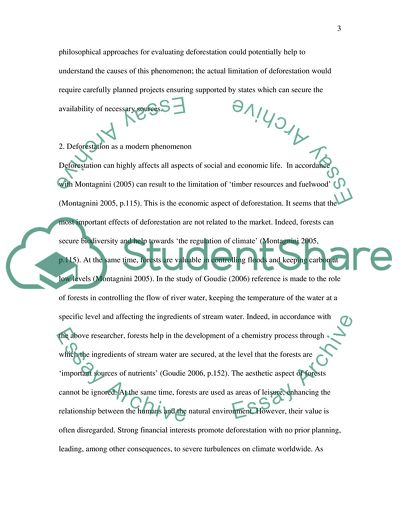Cite this document
(Deforestation and the effects on the environment with philosophical Essay - 1, n.d.)
Deforestation and the effects on the environment with philosophical Essay - 1. https://studentshare.org/philosophy/1765354-deforestation-and-the-effects-on-the-environment-with-philosophical-theoretical-issues
Deforestation and the effects on the environment with philosophical Essay - 1. https://studentshare.org/philosophy/1765354-deforestation-and-the-effects-on-the-environment-with-philosophical-theoretical-issues
(Deforestation and the Effects on the Environment With Philosophical Essay - 1)
Deforestation and the Effects on the Environment With Philosophical Essay - 1. https://studentshare.org/philosophy/1765354-deforestation-and-the-effects-on-the-environment-with-philosophical-theoretical-issues.
Deforestation and the Effects on the Environment With Philosophical Essay - 1. https://studentshare.org/philosophy/1765354-deforestation-and-the-effects-on-the-environment-with-philosophical-theoretical-issues.
“Deforestation and the Effects on the Environment With Philosophical Essay - 1”. https://studentshare.org/philosophy/1765354-deforestation-and-the-effects-on-the-environment-with-philosophical-theoretical-issues.


